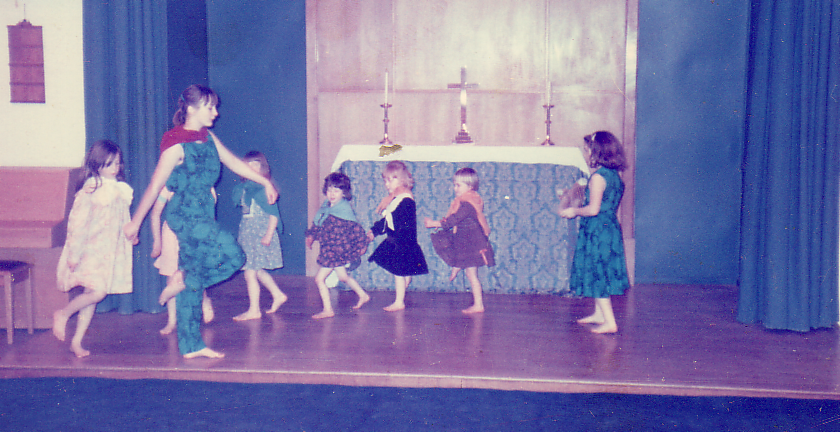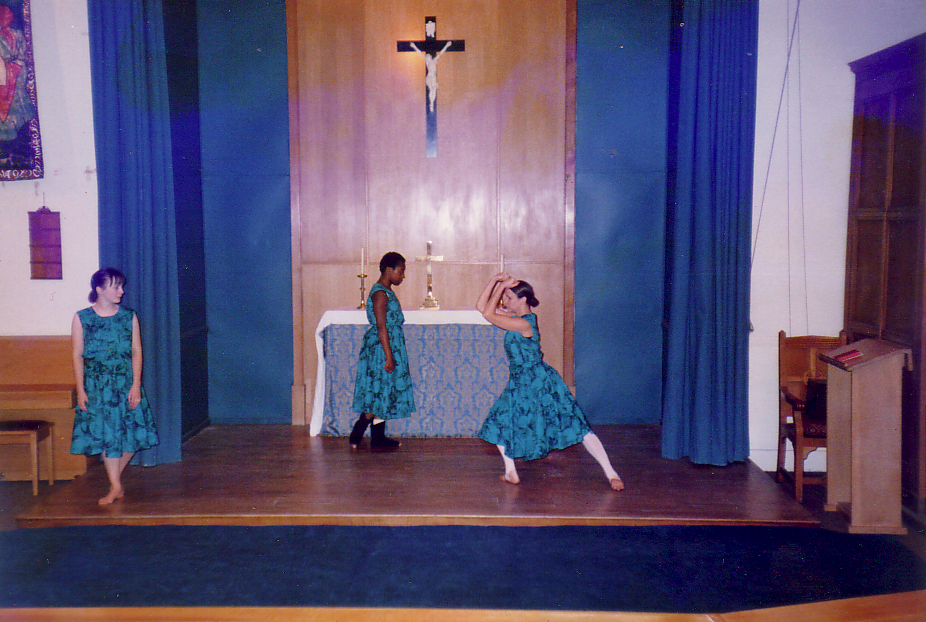I USED TO BE
PROUD TO WORK IN THE PRISON SERVICE
Generally, some of the public and prisoners don’t think much of prison
officers. However it didn’t stop one ex prisoner asking, “Miss, what do I
have to do to get back? I’m sleeping in a ‘phone box”.
I was employed to work in Health Care as an HCO but I always admired the
work of the main body of officers, the Discipline Officers. They do a
terrific job and I wish I had the skill they demonstrate day after day, and
still manage to end up joking, a daily occurrence at work!
PROUD TO BE A HEALTHCARE OFFICER
Trained to understand, more or less, what was going on around us, to be
part of the whole jail staff team, to understand the need for security, to
be able to help our colleagues, being an Officer was a vital part of my
role as a Health Care Officer. We could do the nursing (I am an RGN) but
also the Discipline things.
At a hostage incident when I had gone to Discipline duties the prison had
to pay nurses to stay all night. Two of us, at the incident, (who by this
time were on the discipline side) were RGN`s. We could have done both
duties. Now, Discipline Officers are deployed to the hospital; the PCT
nurses cannot manage without officers, unable to do the full range of the
duties that we were able to do as Healthcare Officers. I said to my
father once, I had taken a prisoner up to play the chapel organ for an hour
or so. “Didn’t you have a guard with you?” he asked. I was the guard.
But doing Discipline duties is not a job I am good at myself. Fine in
the smaller wings, but the real work, out on the main landings, no.
As a trained officer, and a registered nurse, it meant we had a fantastic
job, varied, funny at times, very busy, could do anything, go anywhere, you
could say, `the best of both worlds` . I was trained in, and practised in
all sorts of areas: Lifer Management, Bereavement counselor, Sentence
Planning, SWIP, SAL, (seeing prisoners are benefiting from the work they
did), and as I happen to speak French fluently (both conversational and
medical), I was able to translate for doctors, officers, at adjudications,
deportation orders etc. And of course I nursed.
Because I was officer trained, prisoners were able to attend a discussion
group (ALPS) in the Chapel – they would otherwise have been banned without
a trained officer present – I was also able to attend to medical needs if
they arose.
Because I was also a trained nurse, prisoners talked to me in a way they
might otherwise not have done –
As a RGN and an Officer I had been:
- Trained to find needles in cells (5 recently) and also to see and help an
inmate when distressed. - Trained to plan a sentence, and also plan daily nursing care.
- Trained in the adjudication process, and also to tend to the wounds which
could well lead to it. - Trained to do C&R and also to ensure the prisoner’s safety and welfare
during it. - Trained in the rules for those in the Seg; and also to care for them.
Trained to care for patient and prisoner.
We (I was one of several here) once had it all, and loved it.
PROUD TO BE A REGISTERED NURSE
Over the years several civilian nurses arrived as PSNs. And fitted in, and
I used to ask them about the NHS, learn new things. Then the PCT took
over. And had apparently no idea of ‘jail craft’ nor any interest in
seeking advice or guidance about prisoners or prison procedure. (When a
Manager thinks it’s OK to take security keys off the ring……….. guess
what follows!) Months before, I had attended an interesting meeting about
the PCT coming in, and been told by nurse leading it, that they would be
happy to respond if we had problems. We had problems. She didn’t respond,
at least, not until forced to by the DoH. Too late. I had learned that
some nurses don’t always behave with the professionalism I had come to
expect.
I moved onto discipline, along with every single one of my HCO colleagues
plus an HCSO.
So I became a discipline officer, still admiring what they do; I always
knew, as a nurse, if I wanted to know what a man was like, I needed to ask
the discipline staff. Sometimes, often, this would save staff and money as
I was able to avoid bed watches. A major part of the discernment process
(diagnosis?) was to ask the discipline staff. A classic example: ‘Smith’
rang in the middle of the night claiming very plausible acute testicular
pain, which, as noted, he had had before. Into the diagnostic bag went his
anger when offered Paracetamol, the fact he said that the last time he had
been sent to outside hospital, and ALSO the fact he had just come back late
from home leave and lost his job. In the end, confirmed later, the correct
diagnosis was ‘mardy’. And how many sick men turn out to be for Transfer
the next day. All those bed watches saved. Have you ever heard a Health
Care Officer say they don’t have time to talk to the discipline staff? I
have heard it said ‘though….
An inmate would say he wasn’t eating, the scales pointed to the truth, but
it was his landing officer who could tell me what he had for lunch! A
patient/prisoner said: “What happens if I kill someone tonight [because he
wasn’t given sleeping pills]?” Me: “You get done for murder tomorrow”.
Or the patient/prisoner who had a ‘fit’ who later said: “Why did you make
remarks about me when I was unconscious?” Or the one who opened his mouth
to answer me, and all his pills fell out, (I was very good at prolonging
conversations when necessary), “Sorry miss, I forgot they were there!”
Or witnessing early on a conversation with middle aged prisoner who was in
tears saying,
“They won’t let me go to my wife’s funeral.” Doctor: “I’m sorry, when
did she die?” Prisoner: “I killed her last week.”
I am still a Registered Nurse, but having been a prison nurse for so long,
a job I was really good at (The SMO told the Governor I had taught him
everything he knew), I would not be any good in a hospital. Prison
Healthcare isn’t hospital nursing, but it is, among other things, what
prison nurses need to be good at. A different kind of nursing,
fascinating, challenging, frustrating, exciting, tragic, and jolly hard
work!
Unfortunately the PCT nurses don’t get the officer training, and therefore
it takes time, and someone, to teach them. With seven experienced prison
service staff ‘lost’ from Health Care in as many months, the new staff have
neither. It was a unique job, and well done. Now?
I USED TO BE
IN THE PRISON SERVICE

